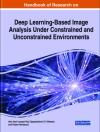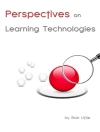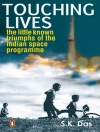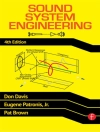Definitions, Concepts and Scope of Engineering Asset Management, the first volume in this new review series, seeks to minimise ambiguities in the subject matter. The ongoing effort to develop guidelines is shaping the future towards the creation of a body of knowledge for the management of engineered physical assets. Increasingly, industry practitioners are looking for strategies and tactics that can be applied to enhance the value-creating capacities of new and installed asset systems. The new knowledge-based economy paradigm provides imperatives to combine various disciplines, knowledge areas and skills for effective engineering asset management. This volume comprises selected papers from the 1st, 2nd, and 3rd World Congresses on Engineering Asset Management, which were convened under the auspices of ISEAM in collaboration with a number of organisations, including CIEAM Australia, Asset Management Council Australia, BINDT UK, and Chinese Academy of Sciences, Beijing University of Chemical Technology, China. Definitions, Concepts and Scope of Engineering Asset Management will be of interest to researchers in engineering, innovation and technology management, as well as to managers, planners and policy-makers in both industry and government.
Table des matières
Definitions.- What Is Engineering Asset Management?.- Concepts.- Identifying Core Functions of Asset Management.- A Framework for Strategic Infrastructure Asset Management.- Scope (Investment and Cost Control).- Regulating Asset Management Through Serviceability and a Common Framework for Investment Planning.- Optimizing Budget Allocations in Naval Configuration Management.- Modelling Total Cost of Ownership of Rail Infrastructure for Outsourcing Maintenance Services.- A Statistical Activity Cost Analysis of Engineering Assets.- Capacity Investment Planning Based on Real Options.- Scope (Asset Data and Condition Monitoring).- Business Rule Discovery Through Data Mining Methods.- Potential Uses of RFID Technology in Asset Management.- Wireless Condition Monitoring and Embedded Novelty Detection.- Integration Through Standards – An Overview of Internal Information Standards for Engineering Asset.- Scope (Sustainability and Safety).- Sustainability-Based Asset Management in the Water Sector.- Asset Management of Portuguese Educational Facilities.- On the Development of an Integrated Framework Based on ‘PERS’ and ‘EFQM’ for Environmental Sustainability Management in Seaports: A Case from Egypt.- Dynamic Project Portfolio Selection in Infrastructure Sector.- The Safety Indicator: Measuring Safety in Gas Distribution Networks.- Scope (Human Dimensions).- Behavioural Preferences for Engineering Asset Management.- The Development of Strategic Asset Management Leaders Through Postgraduate Education.- Experience with Education in Maintenance and Reliability Engineering by Off Campus Learning.
A propos de l’auteur
Joe E. Amadi-Echendu works in the Graduate School of Technology Management at the University of Pretoria, Pretoria, South Africa.
Kerry Brown works for Southern Cross University, Tweed Heads, Australia.
Roger Willet works for the University of Otago, Dunedin, New Zealand.
Joseph Mathew works for Queensland University of Technology, Brisbane, Australia.












